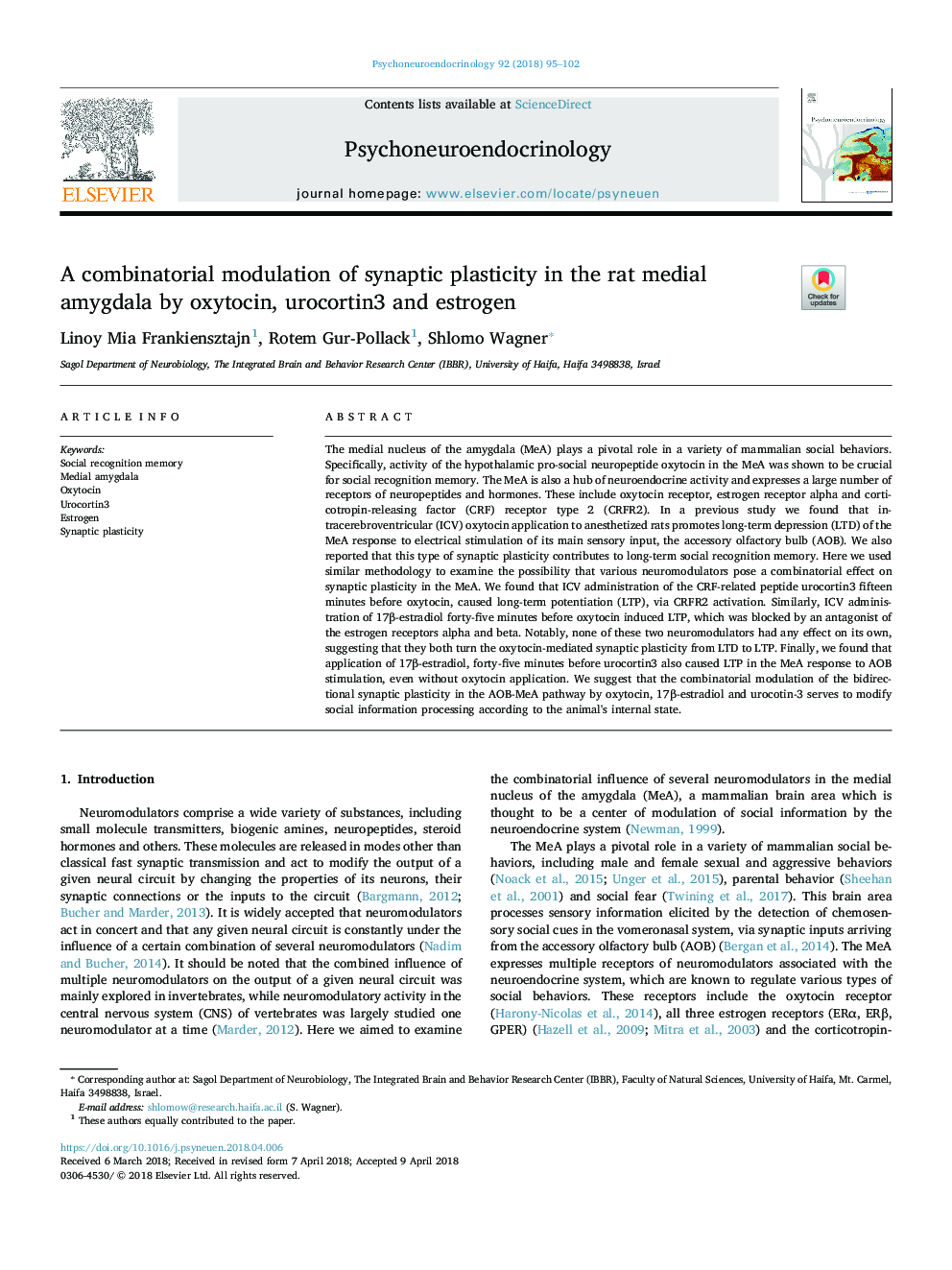| Article ID | Journal | Published Year | Pages | File Type |
|---|---|---|---|---|
| 6817646 | Psychoneuroendocrinology | 2018 | 8 Pages |
Abstract
The medial nucleus of the amygdala (MeA) plays a pivotal role in a variety of mammalian social behaviors. Specifically, activity of the hypothalamic pro-social neuropeptide oxytocin in the MeA was shown to be crucial for social recognition memory. The MeA is also a hub of neuroendocrine activity and expresses a large number of receptors of neuropeptides and hormones. These include oxytocin receptor, estrogen receptor alpha and corticotropin-releasing factor (CRF) receptor type 2 (CRFR2). In a previous study we found that intracerebroventricular (ICV) oxytocin application to anesthetized rats promotes long-term depression (LTD) of the MeA response to electrical stimulation of its main sensory input, the accessory olfactory bulb (AOB). We also reported that this type of synaptic plasticity contributes to long-term social recognition memory. Here we used similar methodology to examine the possibility that various neuromodulators pose a combinatorial effect on synaptic plasticity in the MeA. We found that ICV administration of the CRF-related peptide urocortin3 fifteen minutes before oxytocin, caused long-term potentiation (LTP), via CRFR2 activation. Similarly, ICV administration of 17β-estradiol forty-five minutes before oxytocin induced LTP, which was blocked by an antagonist of the estrogen receptors alpha and beta. Notably, none of these two neuromodulators had any effect on its own, suggesting that they both turn the oxytocin-mediated synaptic plasticity from LTD to LTP. Finally, we found that application of 17β-estradiol, forty-five minutes before urocortin3 also caused LTP in the MeA response to AOB stimulation, even without oxytocin application. We suggest that the combinatorial modulation of the bidirectional synaptic plasticity in the AOB-MeA pathway by oxytocin, 17β-estradiol and urocotin-3 serves to modify social information processing according to the animal's internal state.
Related Topics
Life Sciences
Biochemistry, Genetics and Molecular Biology
Endocrinology
Authors
Linoy Mia Frankiensztajn, Rotem Gur-Pollack, Shlomo Wagner,
